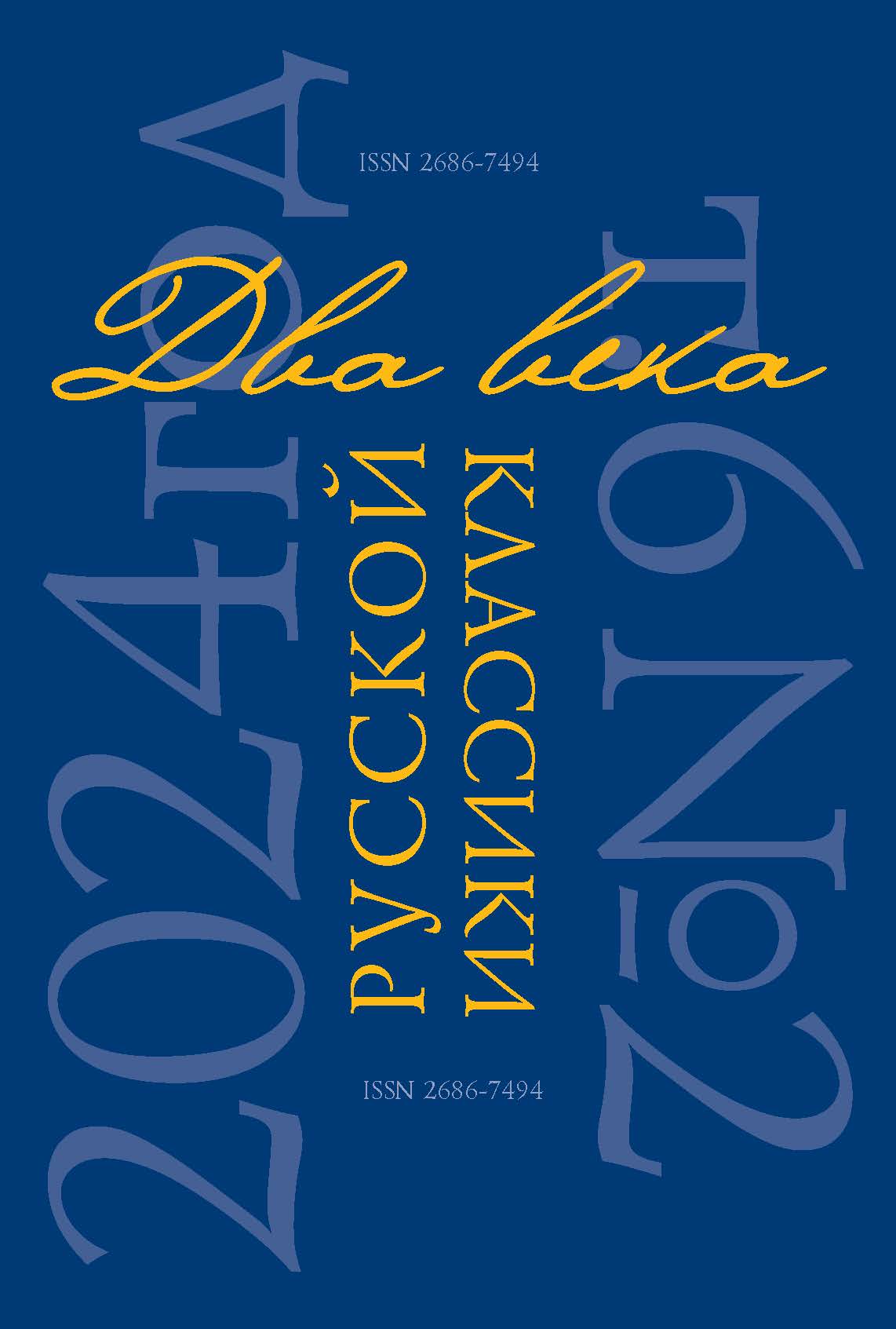Abstract: Despite the fact that religious themes are rare in A. K. Tolstoy’s works, he paid special attention to the image, life and work of John Damascene. This is due to the fact that Tolstoy perceived Damascene not only as a monk and ascetic, but above all as a creative person, a poet. The article shows Tolstoy's attitude to art, notes the parallel he thought out between his own fate and the life of Damascene, the role of the introduction with an oriental flavor in Tolstoy's poem “John Damascene,ˮ which corresponds to the forced presence at the court of Tolstoy himself. The work demonstrates how thoughtfully and subtly the poet puts his own judgments, his theory of art and the origin of creativity in John's reflections on art. The author of the article, following the development of the plot of the poem, states where Tolstoy somewhat deviates from the life of Damascene, and in which places he approaches the hagiographic narrative as much as possible. Particular attention is paid to the analysis of the realization in the poem of Tolstoy's most important motive for the triumph of free speech.
References
“K biografii N. S. Leskova. Iz dnevnika I. A. Shliapkina” [“To the biography of N. S. Leskov. From the diary of I. A. Shlyapkin”]. Russkaia starina, no 12, 1895, pp. 205–215. (In Russ.)
Leskov, A. N. Zhizn' Nikolaia Leskova po ego lichnym, semeinym i nesemeinym zapisiam i pamiatiam: v 2 t. [The Life of Nikolai Leskov Based on His Personal, Family and Non-family Records and Memories: in 2 vols.]. Moscow, Khudozhestvennaia literatura Publ., 1984. (In Russ.)
Leskov, N. S. Sobranie sochinenii: v 11 t. [Collected Works: in 11 vols.], ed. by V. G. Bazanov, B. Ya. Bukhshtab, A. I. Gruzdev. Moscow, Goslitizdat Publ., 1956–1958. (In Russ.)
Maikov, A. N. Sochinenia: v 2 t. [Works: in 2 vols.], vol. 2. Moscow, Pravda Publ., 1984. 576 p. (In Russ.)
Tolstoi, A. K. Polnoe sobranie sochinenii i pis'ma: v 5 t. [Complete Works and Letters: in 5 vols.]. Moscow, RITs “Klassika” Publ., 2016–2018. (in Russ.)
Florovskii, G., prot. Vostochnye ottsy IV–VIII vekov [Eastern Church Fathers of the 4th–8th Centuries]. Paris, 1933. 260 p. (In Russ.)









